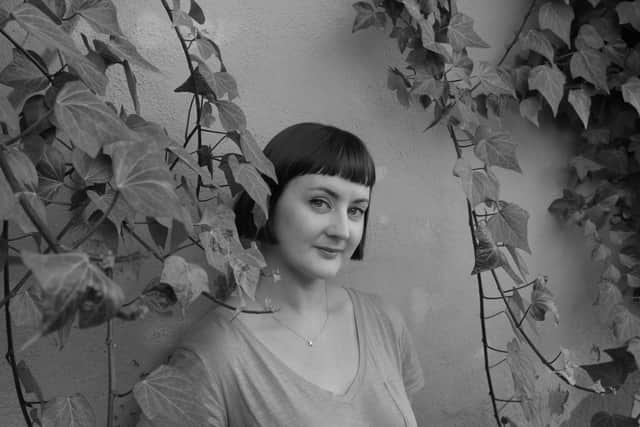Book review: Now She Is Witch, by Kirsty Logan
It’s a characteristic of unsuccessful political movements that they are compelled to repeat themselves, generation upon generation. The second wave feminist revolution of the 1970s was a momentous thing, for those of us who experienced it; yet still, a generation of young women grew up, between 1980 and 2010, knowing little of its depths and nuances, its understanding of women’s bodies, its wisdom about the oppressive ways of patriarchal culture, its poetry, its stories, its rage.
They grew up in a world that said the fight for women’s equality was over; but that was still full of body-shaming and misogyny, of blatant double standards and routine sexual bullying. And so in their turn, within the last decade, many of them became the furious young women of the #MeToo movement, feminism’s third wave; and the novelist and short story writer Kirsty Logan is one of the leaders of that generation in Scotland, a visionary whose fantasy fiction about women making their way in a pre-modern yet post-apocalyptic world captures the mood of the times with a fearful precision.
Advertisement
Hide AdIn a sense, there is nothing new or revelatory about the vision that shapes her new novel, Now She Is Witch. The idea of a young woman escaping the bonds of patriarchy by discovering her rage, her inner she-wolf, her witch, is a familiar one to those who are aware of the terrible history – particularly in Scotland – of the persecution of lone women as witches, and who have encountered feminist classics like Clarissa Pinkola Estes’s 1992 study, Women Who Run With The Wolves.


Yet what Logan brings to her story is a fierce and dream-like poetry that creates layer upon layer of memorable moments and images, as her central character Lux – who grew up alone with an aged mother in a cottage by the forest – embarks on a heroic journey that takes her first to a religious sanctuary where she is sent for safety, and then, after she is demonised and cast out, back to the ruined cottage, and into the forest. Her companion is a shadowy figure called Else, who appears to guide her; and together they journey on, through a strange encounter with a group of travelling players – the idea of theatre and role-playing plays an important part in Lux’s story, as she tries on the different personas imposed on women – to the stronghold of a lord and lady who gradually compel Lux’s story to its crisis and beyond, into a final northward journey towards self-knowledge and self-realisation.
There are many pitfalls in telling a story set in such a fantasy landscape, particularly in the temptation to adopt weird and stylised forms of language. Logan, though, avoids them all. Although her book has a complex structure – involving long life-story narratives by both Lux and Else, set in the middle of the action, and repeated flashback returns to powerful, dream-like moments – her prose remains clean, simple and beautiful throughout, grounded by a powerful sense of the basic means of survival in a subsistence economy; the heat of fires and ovens, warm furs to wear, edible plants, plants with other powers to heal or harm, the occasional feast of meat, and of course the stories and ceremonies that seek to make sense of it all.
Logan’s characters always remain enigmatic and mythical, more like a symbols of a struggle for freedom, and all the forces that might aid or hinder it, than human beings as we know them. When the story is strong enough, though, mythical heroes and evil-doers are more than enough; and when it comes with such a wild and deeply-coloured pulse of poetry and dream, so much the better, and so much the more compelling, haunting, and enriching.
Now She Is Witch, by Kirsty Logan, Vintage, 352pp, £17